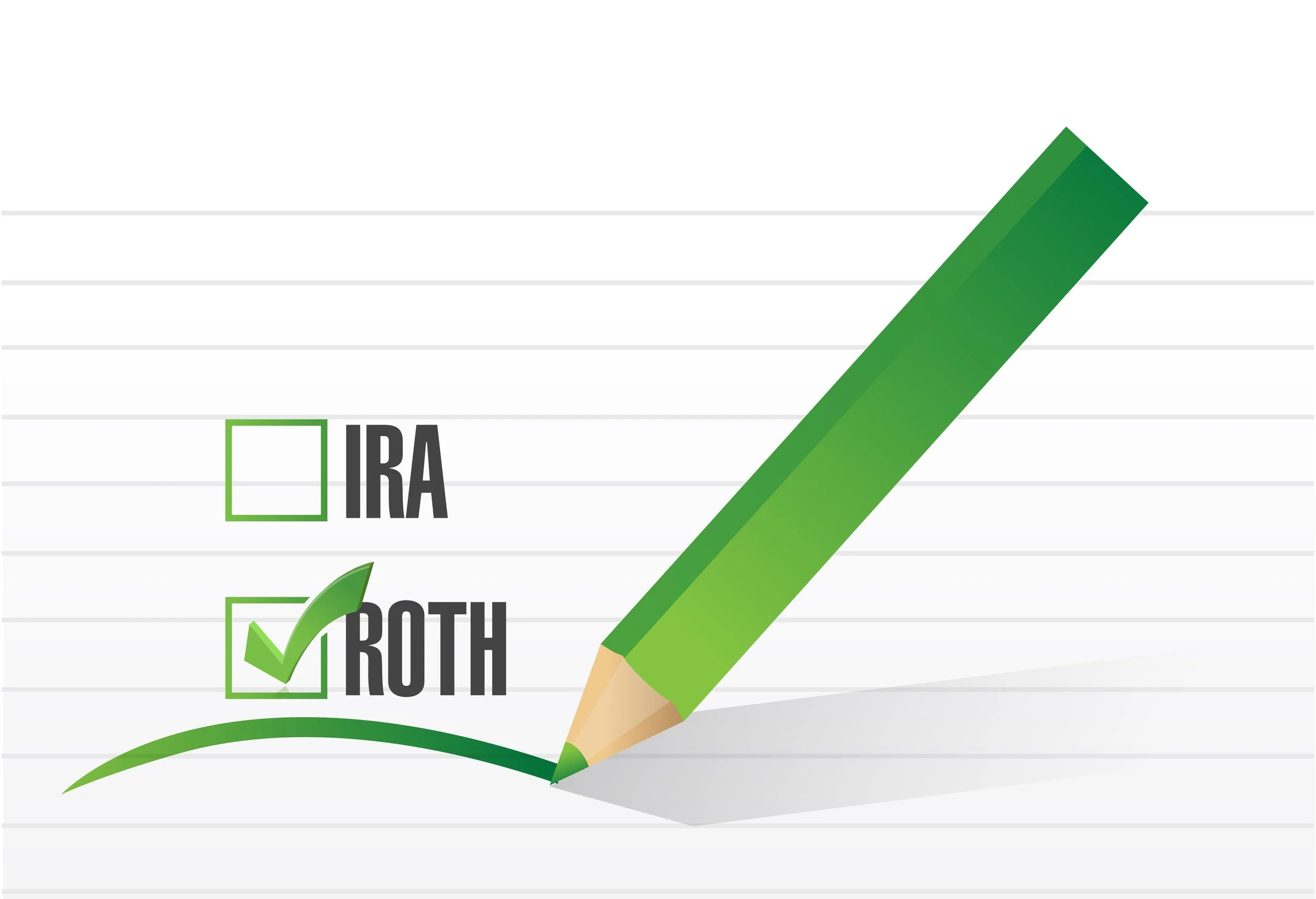Choosing between a Roth and a Traditional 401(k) or IRA is a crucial decision that can significantly impact your financial future. In this blog post, we'll explore six compelling reasons why you should consider opting for a Roth over the traditional alternatives.
1. Certainty in Tax Rates:
One of the key advantages of a Roth is the certainty it provides regarding your tax rate in the future. Predicting your tax rate 20 years down the line is challenging, but with a Roth, you eliminate the uncertainty. Unlike a Traditional 401(k) or IRA, where you'll pay taxes upon withdrawal at whatever rate is applicable then, a Roth allows you to lock in your current tax rate today.
2. Avoiding a Tax Bracket Catastrophe:
Upon retirement, everyone is likely to face lump sum expenses such as a big family vacation, purchasing a second home, paying for the grandkid’s college, or possibly buying a new car, boat, or airplane. Whatever the expense, taking money from a Traditional IRA may catapult you into a higher tax bracket, resulting in a massive tax bite. With a Roth, withdrawals are tax-free, preventing an unexpected tax burden during your retirement years.
3. Tax Efficiency for Heirs:
When passing your estate to heirs, a significant portion may be taxed at the highest bracket if held in a Traditional IRA. Heirs must distribute their Inherited IRA over 10 years, potentially coinciding with their peak earning years. Inheriting a Roth IRA, however, means tax-free distributions for heirs, providing a more tax-efficient wealth transfer.
4. Higher Effective Contribution Limits:
While the annual contribution limits for Roth and Traditional accounts are the same, the effective contribution in a Roth is higher. Since Roth contributions are made after tax, the end balance is tax-free, unlike a Traditional account where withdrawals are taxed. This results in more money in a tax-advantaged account when utilizing a Roth.
5. Tax-Free Social Security Benefits:
Withdrawals from a Roth IRA during retirement won't impact your eligibility for tax-free Social Security benefits. In contrast, withdrawals from a Traditional IRA may contribute to your taxable income, potentially reducing or eliminating the tax-free status of your Social Security benefits.
6. No Required Minimum Distributions (RMDs):
A unique advantage of Roth accounts is that there are no required minimum distributions (RMDs). Unlike Traditional IRAs, which mandate withdrawals starting at a certain age, Roth IRAs allow your money to grow tax-free for generations, providing flexibility in managing your retirement assets.
Choosing between a Roth and a Traditional 401(k) or IRA involves careful consideration of your current and future financial situation. The Roth's tax advantages, including certainty in tax rates, tax efficiency for heirs, and flexibility in withdrawals, make it a compelling option for those looking to maximize their long-term financial success.
